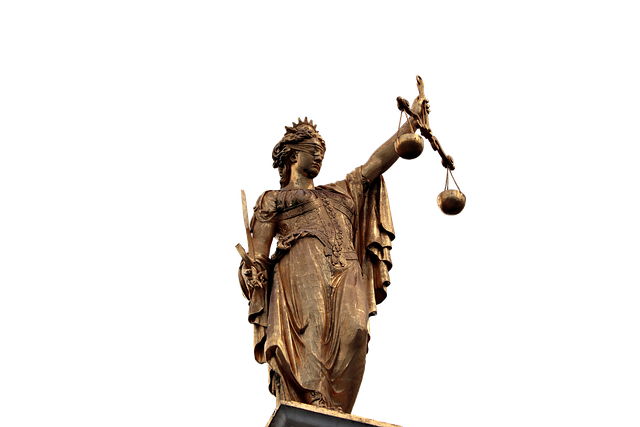Whistleblower Protection Lawsuits are vital in tackling complex legal issues, especially joint property ownership disputes arising from corporate misconduct. These lawsuits protect whistleblowers from retaliation and exposure while navigating the intricate web of rights surrounding both whistleblowing and property disputes. Effective strategies, backed by successful case studies, resolve these conflicts by employing tailored court approaches that secure justice for whistleblowers and create legal precedents. Understanding state and federal whistleblower laws is crucial in addressing these complex conflicts, which often involve personal and professional entanglements. Through studying these cases, organizations can enhance protection mechanisms, supporting individuals who risk significant personal and professional harm to expose wrongdoing.
Whistleblower Protection Lawsuits are a critical mechanism for individuals to expose illegal activities within organizations. This article delves into the legal intricacies of such lawsuits, focusing on a specific challenge: resolving joint property ownership conflicts. We explore how whistleblowers can navigate complex legal remedies when their disclosures lead to disputes over shared assets. Through case studies, we demonstrate effective strategies for addressing these unique scenarios, emphasizing the importance of understanding and leveraging whistleblower protections in resolving joint property ownership conflicts.
- Understanding Whistleblower Protection Lawsuits: A Legal Perspective
- Joint Property Ownership Conflicts: Unraveling the Complexities
- Navigating Legal Remedies for Whistleblowers in Property Disputes
- Case Studies: Resolving Joint Property Ownership Through Litigation
Understanding Whistleblower Protection Lawsuits: A Legal Perspective
Whistleblower Protection Lawsuits are a critical aspect of legal systems designed to safeguard individuals who expose wrongdoing within organizations, often involving white-collar and economic crimes. These lawsuits play a pivotal role in resolving conflicts related to joint property ownership, which can arise when employees or insiders uncover fraudulent activities. In such cases, the legal landscape becomes intricate, requiring a nuanced understanding of both whistleblower rights and property disputes.
When an individual brings forth evidence of corporate misconduct, they may face significant risks, including potential retaliation from employers. The primary objective of whistleblower protection laws is to deter such retaliation and encourage individuals to come forward with information that exposes fraud or other illegal activities. This legal framework provides a safe harbor for whistleblowers, ensuring their employment status, privacy, and protection from legal repercussions. As these lawsuits navigate through the justice system, they address not only the exposure of criminal acts but also the complex issues surrounding ownership rights, especially when misdeeds result in financial losses or ill-gotten gains held jointly by multiple parties.
Joint Property Ownership Conflicts: Unraveling the Complexities
When it comes to whistleblower protection lawsuits involving joint property ownership, resolving conflicts becomes a intricate web. This is particularly true when corporate and individual clients are entwined in the same business ventures, each with their own interests and expectations. The complexities arise from varying interpretations of ownership rights, especially regarding confidential information and trade secrets that may have been shared under nondisclosure agreements.
Addressing these conflicts requires a nuanced approach. Legal strategies must account for the unique dynamics between corporate entities and individual partners while ensuring compliance with whistleblower protection laws across the country. Careful consideration is necessary to safeguard the rights of all involved, preserving the integrity of the respective business ventures and promoting transparent practices.
Navigating Legal Remedies for Whistleblowers in Property Disputes
Navigating legal remedies for whistleblowers involved in property disputes can be complex, especially when joint ownership conflicts arise. In cases where individuals expose white-collar and economic crimes, they often find themselves navigating not only criminal proceedings but also civil lawsuits. Resolving these conflicts requires a deep understanding of both state and federal laws protecting whistleblowers.
An unprecedented track record of success is crucial for effective representation in such cases. Whistleblower protection laws offer various remedies, including legal actions to recover damages, ensure restitution, and enforce compliance with disclosure requirements. When dealing with joint property ownership, courts may employ strategies tailored to the respective business interests involved, aiming to protect the whistleblower’s rights while considering the complexities of the dispute.
Case Studies: Resolving Joint Property Ownership Through Litigation
In many cases involving whistleblowers, one of the most complex aspects is resolving joint property ownership conflicts that arise from their disclosures. These situations often involve a mix of personal and professional relationships, making them delicate to navigate legally. Case studies across the country highlight successful strategies in addressing these issues through litigation. For instance, courts have effectively mediated disputes where whistleblowers sought complete dismissal of all charges related to their exposure of fraudulent activities within organizations.
This legal process not only ensures justice for the whistleblowers but also sets a precedent for navigating similar conflicts in the future. By delving into these cases, the philanthropic and political communities gain insights that can foster better protection mechanisms for individuals who risk their careers and personal wealth to expose wrongdoing. This approach underscores the importance of addressing joint property ownership conflicts in a comprehensive manner, enhancing support systems for whistleblowers across different sectors.
Whistleblower Protection Lawsuits, particularly those involving complex joint property ownership conflicts, require meticulous legal navigation. Understanding the intricacies of these cases is crucial for resolving disputes effectively. By examining real-world case studies, we can glean valuable insights into the successful application of legal remedies. Through strategic litigation, it’s possible to navigate these complexities and achieve just outcomes for whistleblowers, ensuring their rights are protected while unraveling the most intricate property ownership challenges.






